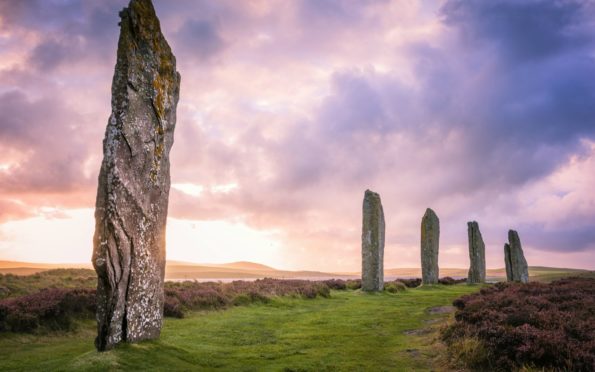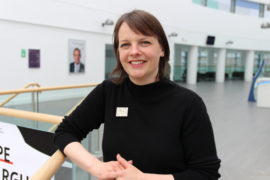Orkney is a unique island group, regularly ranked as one of the best places to live in the UK. But its appeal is much greater than this. Orkney has an entrepreneurial and innovative culture that lends itself to testing new and varied ideas.
As an island group, it offers variety through its mix of towns, rural mainland areas and outer islands, each with differing demographics, service requirements and landscape. Orkney is also large enough for projects to lend scale to research proposals, yet small enough for those projects to be truly transformational.
It is now two years since the establishment of RGU Orkney, an innovative research hub with the goal of enhancing its reach and reputation and ultimately creating transformational research projects. Within this island landscape, community engagement has been at the heart of RGU’s approach, embedding the university’s activities and ethos within local networks.
Setting up and running a satellite initiative requires a close working relationship with the local authority. It’s essential that it benefits the people of Orkney if it is to succeed long-term so aligning activities with local priorities is fundamental. There is already significant research going on in Orkney, particularly in renewable energy and the marine environment, so open dialogue ensures novel projects that are distinct or designed to support existing activity, not just replicate it.
The island hub’s approach has succeeded so far, by being open and friendly so that anyone with an idea or a question can get in touch. Visibility is important and this has been greatly enhanced by moving to the new Orkney Research and Innovation Campus (ORIC) in Stromness.
Building on Orkney’s reputation for innovation in renewable energy, the campus encourages more academics to build their relationships with the islands while supporting the growth of new and existing businesses.
With a diverse approach to community engagement, a wide range of audiences have influenced recent and planned projects, ensuring relevance locally. Engagement should not be tokenistic and should encourage discussion and the sharing of knowledge and ideas for local benefit.
This enhances understanding of specific challenges and opportunities, while encouraging the creation of research projects specific to stakeholder needs and realistic in an island context and the funding landscape.
A workshop series developed alongside local partners explored challenges as diverse as an ageing population, increased tourism, and island-scale circular economies, all within the Orcadian context. Taking academic expertise out to the community has seen the creation of tailored workshops in design thinking, DNA and forensics for schools and community groups. This proactive approach has opened up new experiences locally and highlighted potential careers.
Projects emerging in areas like entrepreneurship, domestic energy efficiency and waste reprocessing exemplify the community approach in Orkney. Building research ideas together has meant stronger networks and the tailoring of actions to provide improved outcomes.
It has also led to more projects at various levels, from specific place-based opportunities to interdisciplinary projects with international collaborators exploring shared links across the north. Importantly this approach is also starting to generate funding. With objectives closely tied to local concerns and aspirations the potential for impact is clear.
In the last year, research in Orkney has expanded to include successful commercial and student initiatives. Actively promoting engagement that prioritises listening to collaborators and looking at means of adapting services for an island environment, has greatly influenced the popularity of initiatives such as the Graduate Apprenticeship Programme.
A work-based learning degree that allows businesses to upskill their teams and shape experience to match future objectives, it also expands higher education opportunities for those who want to remain in Orkney to study.
The impact of Covid-19 on Orkney’s economy and wider community is as yet not fully understood, but it will be significant. As part of a sector-wide response to ongoing challenges RGU will continue to work with local businesses and umbrella organisations to identify activity that will best serve the community and economy as the recovery phase begins.
Does every approach always work? No, but by being open to trying new things, ensuring flexibility and placing the local population at the heart of activities, valuable networks and relationships have been established as well as trust in our work as part of the community.
Two years since the establishment of RGU Orkney we have seen a change, from consistently going out to promote the university to being approached with new ideas, invited to join in a wide range of initiatives and community groups, and as a potential source of support in overcoming local challenges. This is a really positive place to be and we look forward to working with our local partners to face whatever challenges the future brings.
Elsa Cox is Robert Gordon University’s Orkney Project development manager, based in Stromness











